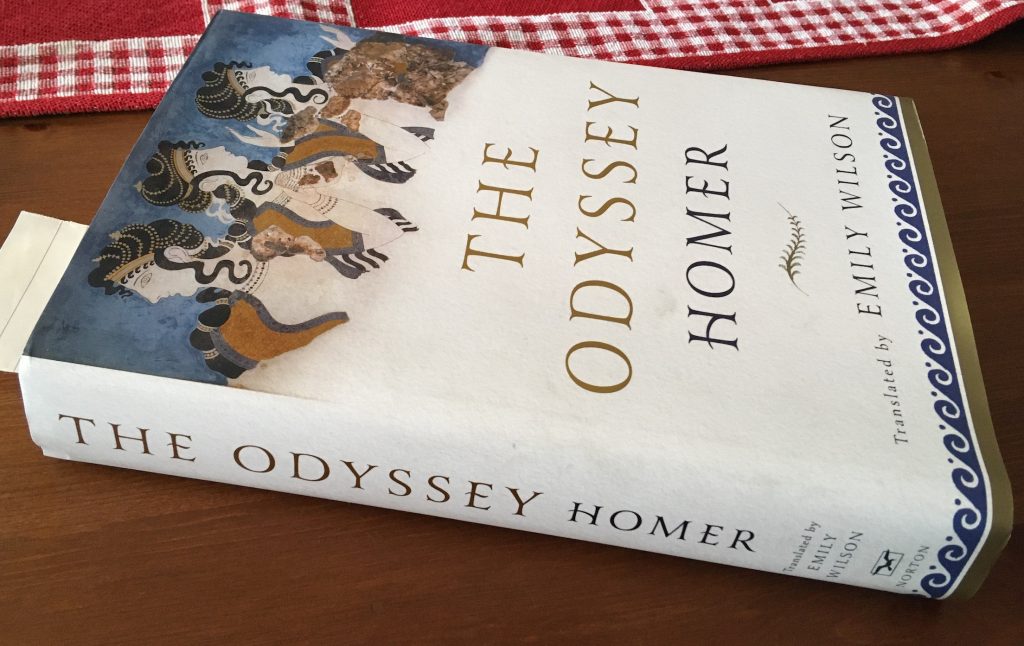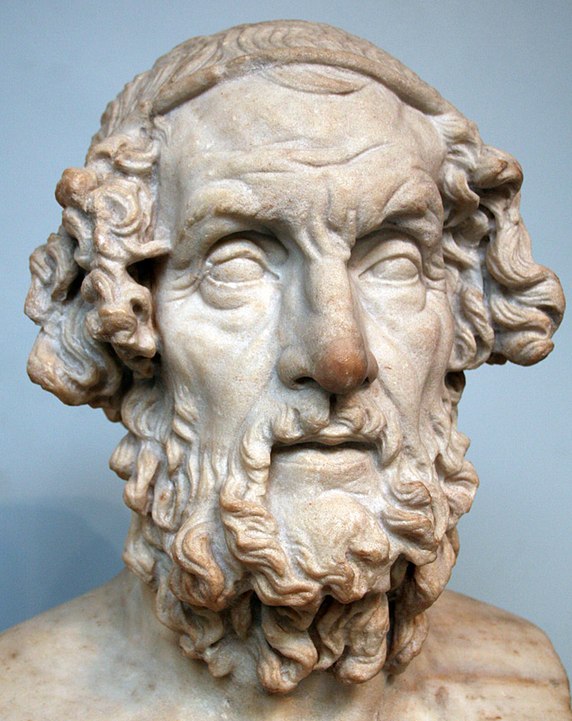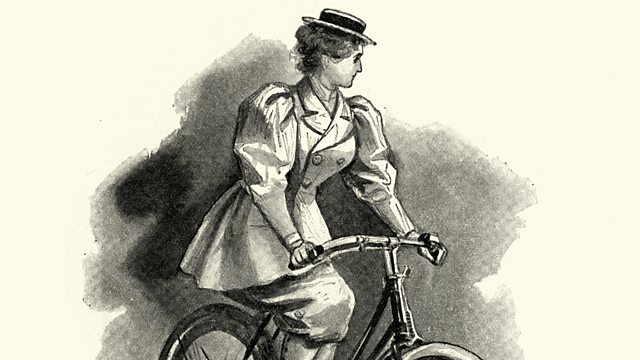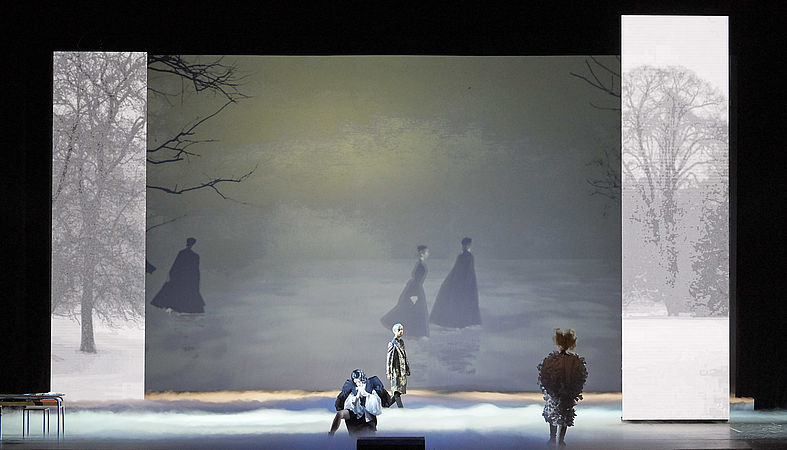Because I did mention it in my introduction, and it is nice to know as well as one might someone one intends spending time with, here is a short video from the MacArthur Foundation, in which Emily Wilson speaks upon her work as a classicist and translator.
Reading Homer’s “The Odyssey”
My reading project
As a special project in this new year 2020, I intend to embark upon a personal and concentrated reading of Emily Wilson’s celebrated 2018 translation of Homer’s “The Odyssey”, and will regularly write some posts to accompany my progress. Whether I can be as industrious as Penelope during her long tormented wait for Odysseus’ return is debatable!
To avoid the complication of having a separate blog, I’ll categorise and number in brackets each post (as in the header above) pertaining to my readings; collated, together with other related material, they will then be accessible as My Odyssey Reading from the main menu.
Page numbers, Book titles and other references will be cited from my hardback first edition copy: Homer, The Odyssey, trans. by Emily Wilson, First Edition, New York: W.W. Norton, 2018

writer and translator
Before getting to the book and the really very substantial introductory pages therein, firstly an introduction to the writer, poet, composer, and all the plurals of the same, that we call simply Homer, and his, her, their most recent translator Emily Wilson.

Whilst legends persist (the blind bard for instance) and are certainly not without interest, whether there was this one Homer to whom can be attributed the epic works of The Iliad and The Odyssey is debatable. I very much like the idea of differentiating between a historical Homer and the poet Homer, which is probably not a terribly original thought but it seems to me a bit like the way of, for instance, approaching the historical Jesus alongside he explained through the lens of Christian dogma. Also, it may be that in a literary sense, identification is better explained through the more generalised “Homeric Question”; answered also with many a dissenting voice but all with the emphasis on Homer as an oral tradition.
Unlike Homer, Emily Wilson is absolutely one real person and has a website and can speak for herself, but briefly: Wilson is a British classicist born into the right family to therefore be educated at the right places to now be Professor of Classics at University of Pennsylvania, celebrated overnight it seems with the publication of her translation and she is, loathe that I am to mention it, since the Summer a recipient of one of these so-called genius grants. None of which I begrudge her, and mercifully, though she may sound a twee bit posh, I don’t think she would hang high the “genius” label! Following is a really interesting lecture she gave in September at Columbia University, focusing on her Odyssey translation, but with more generalised remarks on her method of work.
Also, I think Emily Wilson would have appreciated this review by Gregory Hays in The New York Times with its imperative on the nuance that she brings to her translation, and this is a nice magazine piece also in the Times. Together they say something about the person as scholar and translator, and the very special art of translation. Further links I will add to the sidebar menu.
In the coming days I will post some thoughts on Wilson’s introductory and translator notes – interesting enough in themselves I must say. I am really quite excited about this (Winter!) reading project; in itself an odyssey of sorts. My only encounter in any meaningful way with classics has come in recent years via Gregory Nagy’s edX course The Ancient Greek Hero (which may be caught in a new iteration) and the private reading and study that it encouraged, so the best I can do here is present the observations of an everyman, -woman.
Famously, The Odyssey has 24 books or scrolls, but my ambitions do not stretch to writing systematically on every one of those, instead I’ll condense the purely narrative and concentrate on more thematic aspects that I find to be particularly thought-provoking.
Literary Calendar 2020

Always awaited by me with anticipation, The Guardian‘s annual literary calendar; including anniversaries, adaptations, and of course new book releases – from which I have chosen just some that I am particularly looking forward to.
- Square Haunting by Francesca Wade (Faber) (Jan.)
- The Water Dancer by Ta-Nehisi Coates (Hamish Hamilton) (Feb.)
- Amnesty by Aravind Adiga (Picador) (Feb.)
- Here We Are by Graham Swift (Scribner) (Feb.)
- The Mirror and the Light by Hilary Mantel (4th Estate) (March)
- A Thousand Moons by Sebastian Barry (Faber) (March)
- Hamnet by Maggie O’Farrell (Tinder) (March)
- The Death of Comrade President by Alain Mabanckou (Serpent’s Tail) (March)
- Summer by Ali Smith (Hamish Hamilton) (July)
- How to Stay Sane in an Age of Division by Elif Shafak NF (Wellcome) (July)
- The Mission House by Carys Davies (Granta) (Aug.)
- The Gun, the Ship and the Pen by Linda Colley, NF history (Profile) (Aug.)
- Trio by William Boyd (Viking) (Oct.)
- Snow by John Banville (Faber) (Oct.)
- Tom Stoppard by Hermione Lee, NF biography (Faber) (Oct.)
- The Mark of Cain by Margaret MacMillan, NF Reith Lectures (Profile) (Oct.)
Reading to write
…or writing to be read? Well who doesn’t! And who knows what may beckon in this New Year 2020 soon to begin.
Fiction 2020
Alex Preston from The Observer bemoans the mediocre year just gone, but offers good cheer for the year to come. Here are some of his suggestions that particularly interest me:
- The long awaited and highly anticipated finale to Hilary Mantel’s Thomas Cromwell trilogy, The Mirror and the Light (4th Estate, March) – under strict embargo!
- Hamnet (Tinder Press, March) by Maggie O’Farrell – “an […] imagination of the short life of Shakespeare’s son, Hamnet, and the untold story of his wife, “Agnes” Hathaway.”
- Apeirogon (Bloomsbury, February), by Colum McCann “…ambitious formally and thematically, taking on the Israel-Palestine conflict in a work that is both spectacularly inventive and grounded in hard, often brutal fact. It is about grief and forgiveness, about family and politics… If you can read it without sobbing, you’re a monster.”
- Sebastian Barry’s A Thousand Moons (Faber, March). “Set in the wake of the American civil war, it tells the story of Winona, a brave, bruised orphan from the Lakota tribe whose new life on a Tennessee farmstead is threatened by the past.”
- “…the final part of Ali Smith’s era-defining seasonal quartet, Summer (Penguin, July)”
- Kate Grenville’s A Room Made of Leaves (Text, July) (“..which I’ve read and it’s every bit as good as The Secret River” says Preston – let us hope!)
A very nice start I would say. Preston’s preview in its entirety can be found here on The Guardian site.
Clarissa’s other party
Doing some podcast catching up over Christmas, I particularly liked an episode of “The Essay” from BBC Radio 3 in which Bernardine Evarista imagines another ending to Mrs. Dalloway.

In fact, several things Evarista says in her (audio) essay interest me. Firstly, “To the Lighthouse” was her first encounter with Virginia Woolf, but that contrary to my immediate delight on reading this book many years ago, she as a girl of colour yearning to discover something of herself in the books she read, was left cold by the very white, very English world of the Ramsays, and so concluded Woolf had nothing to say to her. A lot later then came Mrs. Dalloway into the life of the the mature writer Evarista, comfortable now in her skin and in her person, she sees the fearless experimentalist writer that also does “skin”; differently, inhabiting the skin of her characters. Evarista it seems can at last appreciate the unique genius of Woolf. (And, in this audio, speak beautifully on it.)
Thinking of Mrs. Dalloway not so long ago, I too used the expression “a day in the life of” , but Evarista cleverly takes our shared expression one step further; turning it around and adding “…or a life in a day”, thereby getting to the very essence of the novel; unmasking the shallow exterior to reveal the history and complexity of an inner life, and not just that of Clarissa Dalloway, for all the characters carry the baggage that a life brings; strewn as it is with regrets, dissatisfactions, repressions, be they emotional, sexual or matters of practical predicament.
Bernadine Evarista’s ending is a reimagining of the character of Lady Rossiter – Sally – Clarissa’s intimate friend of youth, such that, instead of bowing to the restrictions of convention and society, Sally leads still the spirited, free life so promised in that rebellious girl long ago.
A linguistic minefield
Lionel Shriver writes in Harper’s (paywall or if you’re lucky the one read a month) of the linguistic minefield to be navigated these days in both the written word and in conversation. I suppose I use “lefty lingo” (but in moderation I think), as she calls it, but I too have found myself grating at the (over-) use of a certain vocabulary and terminology in the media. (Do we actually speak like that to each other in everyday discourse?)
I recognise very well Shriver’s irritation with words like “privilege” and “woke”; staples of the progressive vocabulary, and I too struggle with the appropriate formulation of terms relating to “colour” and “slave”, and I absolutely have been known to rant about the lack of precision and lazy use of “cultural appropriation“…
This leads (inadvertently!) to “inappropriate” I guess, and “problematic” and “troubling”; almost always relating to (mis-) behaviour – rather ordinary words that, extraordinarily, have become somehow tainted through excessive repetition.
There is something, in my opinion, to Lionel Shriver’s thesis that this conformist language identifies cohorts, and its prescriptive tone excludes others. Did I say “others”? A word I have identified as having been given a particular emphasis beyond that of a common determiner. Who defines “others”? These excluded “others” definitely do not fit within the accepted parameters of contemporary speech, in which an “other” is more likely to refer to a “minority”, and to be then further complicated by “marginalised communities” being a preferred term here.
I find myself thinking about the UK elections just won and lost in the northern counties and towns of England, and just wonder at how cranky some voters may very well be, there, where a night at the pub doesn’t revolve around “identity” at the mild end and the “cis-heteronormative patriarchy” at the extreme, and where people may well feel “marginalised” and any “privilege” well earned.
It’s complicated [sic].
From page to stage
Virginia Woolf’s “orlando”
Should anyone be in doubt of the quiet subversive lurking in Virginia Woolf’s work, or of her relevancy almost eighty years after her death, should read, or return to, her 1928 novella Orlando. Something I intend doing, so that I can think and write about it from this particular place in time (and ‘place in time’ is at the essence of this work). One really just has to contemplate the language and concerns in our every day – gendered and fluid, and in accord with biology some would say – to recognise in the radical Woolf a version of ourselves.

Certainly I am not alone in pondering again this extraordinary work; Tilda Swindon does it a lot and again recently, and just this year there has been a Katie Mitchell stage adaptation in Berlin and Paris (and in London next year). And now, at the Wiener Staatsoper, a production from the Austrian composer, Olga Neuwirth greeted with superlatives – here, a Guardian review.
